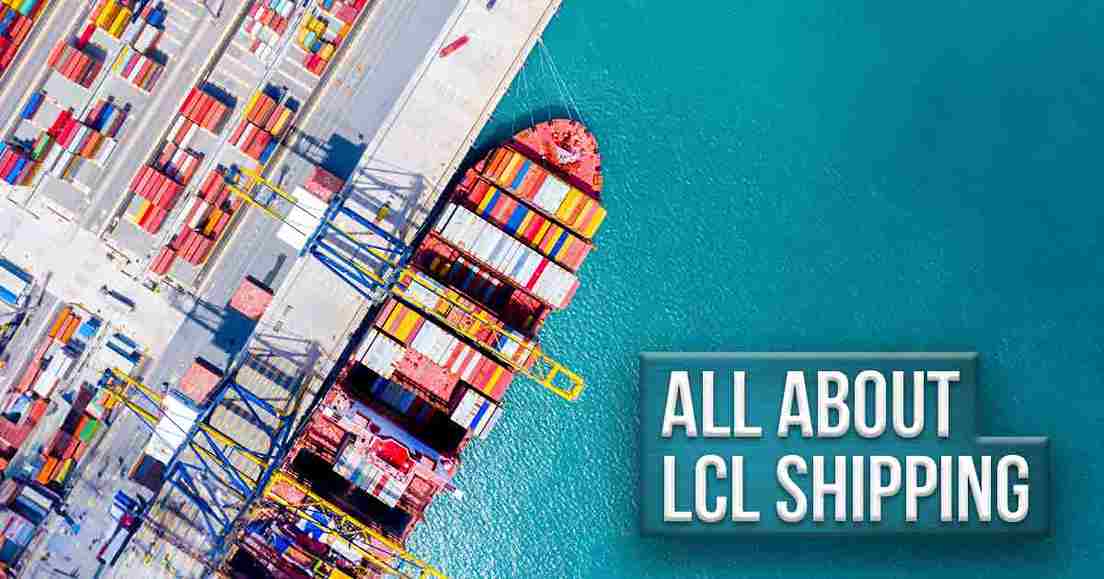
In the world of logistics, LCL (Less than Container Load) shipping is an effective solution for transporting goods that are not enough to fill a full container. This concept allows various shippers to share container space, making it a cost-effective and flexible option for small-scale shipping. Check LCL Deliveree prices by pressing the following button.
What is LCL (Less Container Load)?
LCL (Less than Container Load) is a method of shipping goods where cargo from various shippers is collected and loaded into one container. This method is ideal for shipping goods with a volume not sufficient to fill a full container (FCL – Full Container Load). LCL allows shippers with smaller cargo volumes to still be able to ship their goods internationally without having to pay for an entire container.
What’s the Difference Between LCL and FCL?
The main difference between LCL (Less than Container Load) and FCL (Full Container Load) lies in the amount of goods shipped and how they are placed in the container during shipment.
| Aspek | LCL | FCL |
|---|---|---|
Capacity | Combined with items from other shippers. | Containers only contain goods from one shipper. |
Shipping Cost | Based on volume/weight of goods. Cost-effective for small quantities. | Flat fee per container. Cost-effective for large quantities. |
Delivery Time | Longer. | Faster. |
Risk of Damage | Higher. | Lower. |
Flexibility & Privacy | Less flexible, limited privacy. | More flexible, privacy ensured. |
Overall, choosing between LCL and FCL depends greatly on the amount of goods that need to be shipped, your budget, shipping schedule, and the level of risk you are willing to accept.
Advantages of LCL Shipping
Shipping with LCL has several advantages, including:
- Lower Cost: As the container cost is shared among multiple shippers, the cost per unit of goods becomes lower.
- Flexibility: LCL offers flexibility in shipping smaller volumes of goods without having to wait for enough cargo for a full container.
- Ideal for SMEs: This method is very suitable for Small and Medium Enterprises (SMEs) who do not have large cargo volumes.
LCL Shipping Process
The LCL (Less than Container Load) shipping process is an efficient method for sending smaller quantities of goods, which do not require the use of an entire container. Here are the complete stages in LCL shipping:
- Consolidation of Goods: This step involves collecting and packaging goods in a warehouse. Here, your goods will be consolidated or combined into one container along with goods from other shippers. This process ensures efficient use of container space and reduces shipping costs, as the container costs are divided with other goods owners.
- Preparation of Documents: Before the goods are shipped, necessary documents such as the cargo list, commercial invoice, and other shipping documents must be prepared. This ensures compliance with export-import regulations and assists in the customs process.
- Transportation to the Port: After the goods are consolidated and documents prepared, the container is transported from the warehouse to the port. This transport can be done by truck or train, depending on the distance and available transportation infrastructure.
- Loading onto the Ship: At the port, the container is lifted by a crane and loaded onto a cargo ship. This process requires careful coordination to ensure that all goods are shipped safely and efficiently.
- Sea Shipping: Next, the goods in the container will go through a sea voyage to the destination country. During shipping, the condition of the goods is monitored to ensure no damage or loss occurs.
- Deconsolidation: Upon arrival at the destination port, the container is unloaded, and the goods are removed. The goods are then deconsolidated, meaning separated from the goods of other shippers, and prepared for pickup or further delivery to the final destination.
- Final Delivery: The final stage involves delivering the goods from the port to the final recipient’s location. This can be done
LCL Shipping Costs
The cost of LCL (Less Container Load) shipping is usually calculated based on the volume of goods in cubic meters (CBM). LCL shipping costs are also influenced by other factors, such as:
- Shipping route. Longer shipping routes typically have higher shipping costs.
- Type of goods. Heavier goods or those requiring special handling usually have higher shipping costs.
- Shipping time. Faster shipping times usually have higher shipping costs.
To get an accurate LCL cost estimate, we recommend contacting the shipping company directly with your shipping details. Deliveree LCL price calculator provides an instant quote that you can use directly and easily to get a Deliveree LCL cost estimate.
LCL Shipping Insurance
LCL (Less Container Load) shipping insurance provides protection against the risk of damage or loss of goods. Here is a brief overview of how insurance works in LCL shipping:
- Insurance Options: The shipper chooses insurance through the shipping company or third-party insurance.
- Value of Goods: Determine the insurance value based on the value of the goods and shipping costs.
- Insurance Coverage: Insurance offers various coverages, from total damage to partial damage and delays.
- Insurance Premium: The premium is calculated based on the value of the goods, route, type of goods, and risk level.
- Claim Process: The shipper files a claim with supporting documents in case of damage or loss.
- Claim Payment: The insurance company assesses and pays compensation according to the policy.
How Do LCL and FCL Prices Compare?
In the world of logistics, understanding how prices are set for LCL (Less Container Load) and FCL (Full Container Load) shipping is crucial. Both methods have different pricing methods based on their shipping characteristics.
LCL Prices
- Based on Volume and Weight: LCL prices are determined based on the volume (in cubic meters) or weight (in kilograms) of the shipped goods, whichever is greater. This is because the use of space and weight are the main factors in filling a container.
- Additional Costs: LCL shipping may involve additional costs such as consolidation fees, warehouse handling, and deconsolidation fees. This is due to the additional processes required to collect and separate goods from different shippers.
- Fixed Costs: Some fixed costs may be charged, such as document fees, which do not depend on the size or weight of the goods.
FCL Prices
- Price Per Container: In FCL shipping, the cost is determined per container. No matter how full the container is, the shipper pays the same price for the entire container.
- More Efficient for Large Volumes: For shipments with enough volume to fill a container, FCL is usually more economical. This is because the shipper does not have to pay additional fees for consolidation and deconsolidation processes.
- Simpler: The pricing structure for FCL is simpler as it involves fewer costs and is easier to calculate.
LCL vs FCL Price Comparison
- For Small Volumes: LCL is more advantageous for smaller volumes because shippers only pay for the space they use.
- For Large Volumes: FCL becomes more economical if the goods are enough to fill a full container as the cost per unit of goods becomes lower.
- Convenience and Flexibility: LCL offers more flexibility but with a more complex pricing structure. FCL is simpler in terms of pricing but requires a large volume of goods.
Considerations for Using LCL Shipping
There are several factors you should consider when wanting to use LCL services:
- Volume of goods. LCL service is suitable for shipping goods with not too large a volume. If the volume of goods is too large, then the cost of LCL shipping will be more expensive than FCL shipping.
- Delivery time. LCL service has a longer delivery time than FCL shipping. This is because the goods must be unloaded and reloaded at transit ports. If delivery time is an important factor, then FCL shipping is more suitable.
- Shipping frequency. LCL service can be done more frequently than FCL shipping. This makes LCL suitable for urgent goods shipments.
In addition to the above considerations, you should also consider other factors, such as:
- Insurance costs. Goods shipped by LCL need to be insured to protect against the risk of damage or loss.
- Documentation costs. You need to prepare the necessary shipping documents, such as invoices, packing lists, and bills of lading.
- Additional costs. In addition to shipping costs, you also need to pay other additional costs, such as handling fees, fumigation fees, and other miscellaneous fees.
Read More:





 CHECK EXPEDITION PRICE
CHECK EXPEDITION PRICE


 Chat
Chat